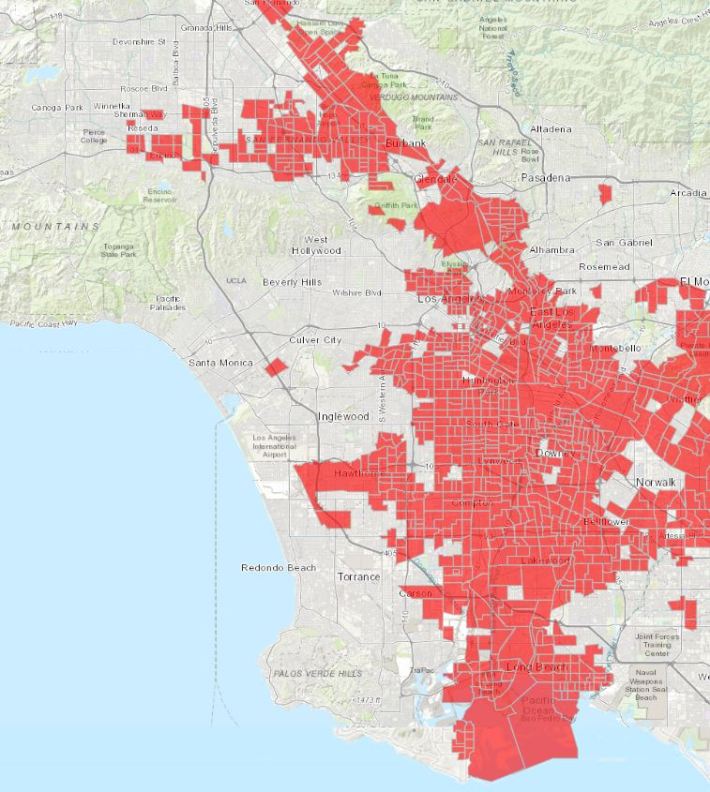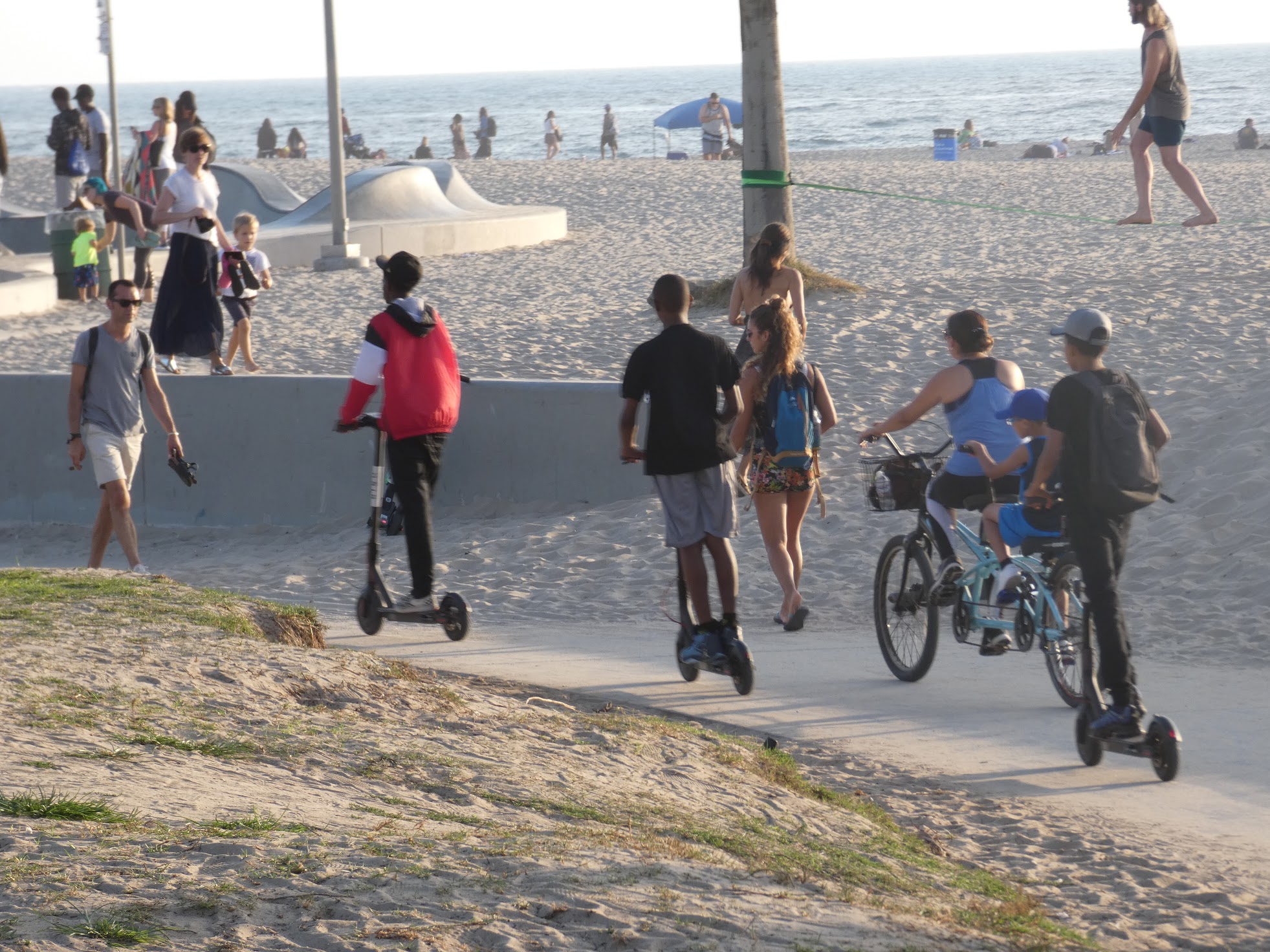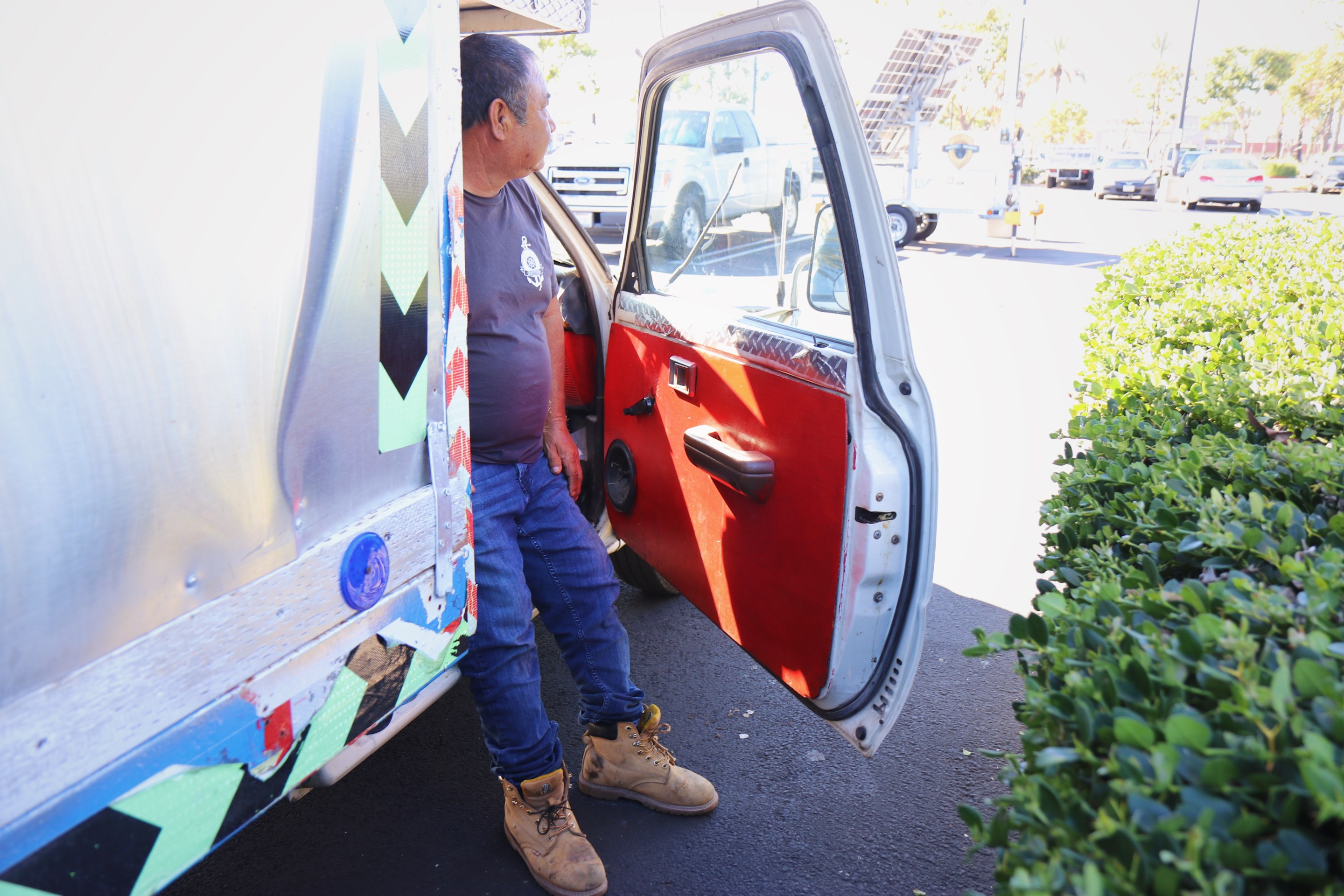[dropcap size=big]L[/dropcap]os Angeles is the latest city to set rules for where, when, and how dockless electric scooter rental companies can operate after the City Council passed new regulations this week. The “shared mobility” businesses — the largest of which are Bird and Lime — can now apply for one-year pilot permits to operate a maximum of 3,000 scooters each within city limits. The cap excludes Districts 4 and 15, until their already-existing pilot programs expire.
Applicants are incentivized to work in state-designated “disadvantaged” areas across L.A. in exchange for an increased device cap. (Doing so in the L.A. Basin is worth an additional 2,500 scooters, while the Valley adds up to 5,000.) In practical terms, companies will need merely to venture beyond the Westside and West Valley to meet these standards.
In addition, after almost a full year of experimenting freely, scooter operators will have to pay if they want to play.
An annual permit of $20,000, a $130 fee per scooter (reduced to $39 in disadvantaged areas), and $5 million in commercial liability insurance are all part of the program deal. They’ll also need to establish 24-hour hotlines for city residents to report devices that are broken or blocking public walkways.
RELATED: Snap Is Pulling Out Venice, and Gentrification Activists Are Overjoyed
L.A. joins Santa Monica, Culver City, and Long Beach as the fourth city to design a pilot program testing the waters of dockless scooter regulation. Long Beach’s trial run will be the shortest, at just four months, while Santa Monica has allotted a full sixteen for its pilot program.
[dropcap size=big]T[/dropcap]he programs represent a win for companies when compared to the reaction of cities like West Hollywood and Beverly Hills, which banned the scooters outright while formulating regulations. Furthermore, the pilots could be an opportunity to cull some competition in what is now a crowded market – Santa Monica, for example, is only accepting four companies into its plan.
The scooter phenomenon has plenty of popular support among riders, and the L.A. City Council sees them as an essential part of what Councilmember Joe Buscaino called “multimodal infrastructure to reduce traffic, link people to public transit, and reduce greenhouse gas emissions.”

But that warm embrace isn’t shared ubiquitously across the city. Accidents, discarded scooters blocking and blighting sidewalks, and complaints of unfair business tactics have plagued the spate of scooter rental companies.
Lime representative Courtney Torres said the company “welcomes the ... approval of new regulations” and plans to apply for a permit. Bird did not reply to a request for comment, but a representative previously told L.A. Taco the company is “committed to following the law and being a good corporate citizen.”
RELATED: Bird Battles ~ Cities, Vigilantes Take Aim at E-Scooters







